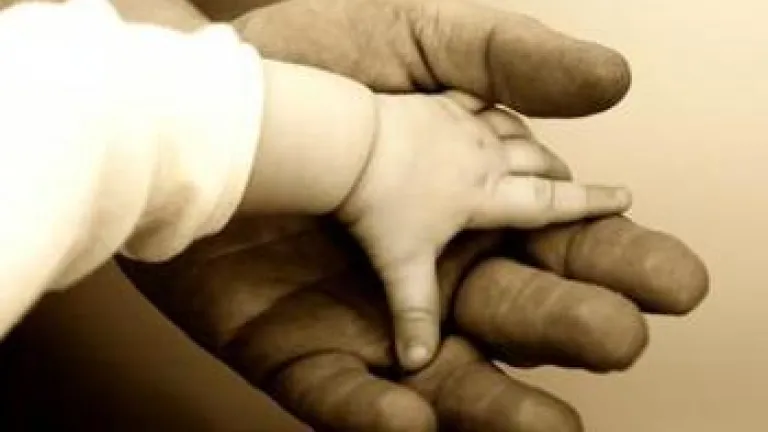God Wants a Relationship With Us
Which came first, man's need for a relationship with God or God's desire for a relationship with man? Here is the answer.
"We have all faced the age-old question about which came first, the chicken or the egg. The question could apply to our relationship with God: Which came first, man's need for a relationship with God or God's desire for a relationship with man? Here is the answer:
"We love Him because He first loved us," explains the apostle John (1 John 4:19, emphasis added throughout). John also tells us, "In this is love, not that we loved God but that he loved us and sent his Son to be the atoning sacrifice for our sins" (1 John 4:10, New Revised Standard Version). Clearly, it was God's desire and plan to establish a relationship between human beings and Himself.
We must keep in mind God's purpose for creating us. Previous lessons of this Bible study course have extensively covered His purpose and plan for humanity. We learned that God designed human beings to reflect His very character—to be like Him. "In the day that God created man, He made him in the likeness of God" (Genesis 5:1). "So God created man in His own image; in the image of God created him; male and female He created them" (Genesis 1:27).
We need to consider a few basic principles about relationships before we delve into the details of God's commitment to and His expectations from His relationship with us.
First we need to ask, What is a relationship? Webster's New World College Dictionary defines it as "the quality or state of being related, a continuing attachment or association between persons."
God instituted this type of relationship with ancient Israel when He said, "I will walk among you and be your God, and you shall be My people" (Leviticus 26:12)
These few words summarize what God wants in His relationship with people. Notice the two aspects of God's simple statement.
First He expresses His desire that we acknowledge and accept Him as the Supreme Being. Then He expresses His desire to associate with—to have a relationship with—those who accept Him as their God.
Once we understand God desires a relationship with us, we should more than ever recognize we truly need Him. The apostle Paul reminds us: "There is no question of our having sufficient power in ourselves: we cannot claim anything as our own. The power we have comes from God" (2 Corinthians 3:5, Revised English Bible).
The apostle John briefly describes the nature of the relationship we are to have with God. "Behold what manner of love the Father has bestowed on us, that we should be called children of God! . . . Beloved, now we are children of God; and it has not yet been revealed what we shall be, but we know that when He is revealed, we shall be like Him, for we shall see Him as He is. And everyone who has this hope in Him purifies himself, just as He is pure" (1 John 3:1-3).
Here we see the purpose for the creation of mankind: God is building a family—His own family. He created us so we can have a special Father-child relationship with Him. God plans to bestow His immortality on us. As Paul explains, "this perishable body must be clothed with the imperishable, and what is mortal with immortality" (1 Corinthians 15:53, REB). God wants an eternal relationship with us as His children.
Paul tells us that "God our Savior . . . desires all men to be saved and to come to the knowledge of the truth" (1 Timothy 2:3-4). God has planned a way to make this relationship available to every human being according to His timetable. As Peter wrote: "The Lord is not slack concerning His promise,as some count slackness, but is longsuffering toward us, not willing that any should perish but that all should come to repentance" (2 Peter 3:9).
Notice Peter says repentance plays an integral role in cementing the relationship between God and man. God is eager to establish that relationship. But He conditions it on our willingness to recognize, acknowledge and repent of our former ways and determine to seek Him. Only then can God redeem us from the penalty of death we deserve because of our sins.







